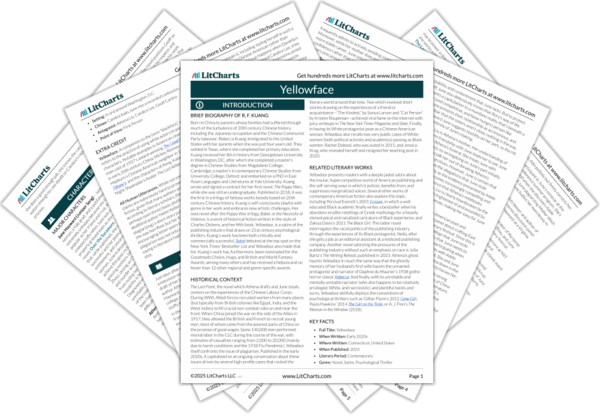June’s aversion to Chinese food may bespeak a guilty conscience (the last time she ate it was at the Rockville event, after all) or it may just be another thing that testifies to her blatant (if unacknowledged) dislike of AAPI people and cultures. Pay attention to what June’s mother suggests and why. She wants her daughter to consider a more stable career because she’s concerned for her happiness. June is, in fact, deeply unhappy as a writer at the moment, and she has been imagining alternative careers in her own time. But she’s unwilling to give her mother the satisfaction of telling her what to do—or to give up the identity (promising and important young author) she’s painstakingly crafted for herself. Plus, she’s not willing to go back into obscurity without a fight.
